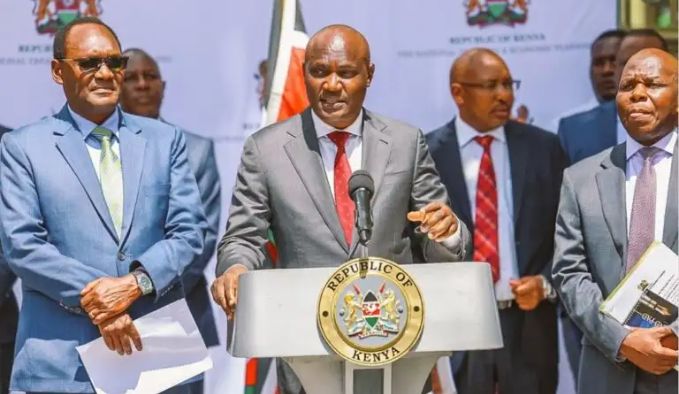Treasury Cabinet Secretary John Mbadi has directed the boards of six regional development authorities (RDAs) to halt all promotions, new recruiting, new appointments, and new project implementation effective immediately.
According to the new directive, the Coast Development Authority, Ewaso Ng’iro North Development Authority (ENNDA), Ewaso Ng’iro South Development Authority (ENSDA), Kerio Valley Development Authority (KVDA), Lake Basin Development Authority (LBDA), and Tana and Athi Rivers Development Authority (TARDA) will all cease key operations.
The resolution paves the way for the reorganization of the cash-strapped groups, as the government moves forward with its parastatal reform agenda, which was approved by the Cabinet in January.
Since March 2024, the RDAs have been subject to state review to ensure that they are consistent with the new Constitution, which includes provisions for developed functions.
The Kenyan Constitution of 2010 established new functions for RDAs once devolution began. The assessment would help analyze the effects, roles, and effectiveness of RDAs in aligning with county actions to stimulate growth. However, the review will not result in the RDAs being transferred to county governments.
The new development followed President William Ruto’s Cabinet meeting in Kakamega State Lodge on Tuesday, January 21.
It was decided to combine 42 state enterprises into 20 parastatals, seeing the move as a way to improve operational efficiency and reduce redundancy.
The decision would also result in the dissolution of some state corporations, with their functions transferred to relevant ministries or other state institutions.
Corporations having outmoded mandates that can be efficiently managed by the private sector would be divested or liquidated.The six RDAs were designated in the new order as entities that will be divested to the private sector or abolished entirely.
This would result in drastic changes to employment, service delivery, and general efficiency.
Aside from the fiscal challenges caused by restricted government resources, the Cabinet discovered that several parastatals were unable to achieve their contractual and statutory commitments.
This resulted in a massive pile of pending bills.“These reforms have been necessitated by increasing fiscal pressures arising from constrained government resources, the demand for high-quality public services, and the growing public debt burden,” the dispatch read in part.
“Many State Corporations have struggled to meet their contractual and statutory obligations, leading to an accumulation of pending bills amounting to KSh94.4 billion as of March 31, 2024,” added the dispatch.





















Add Comment